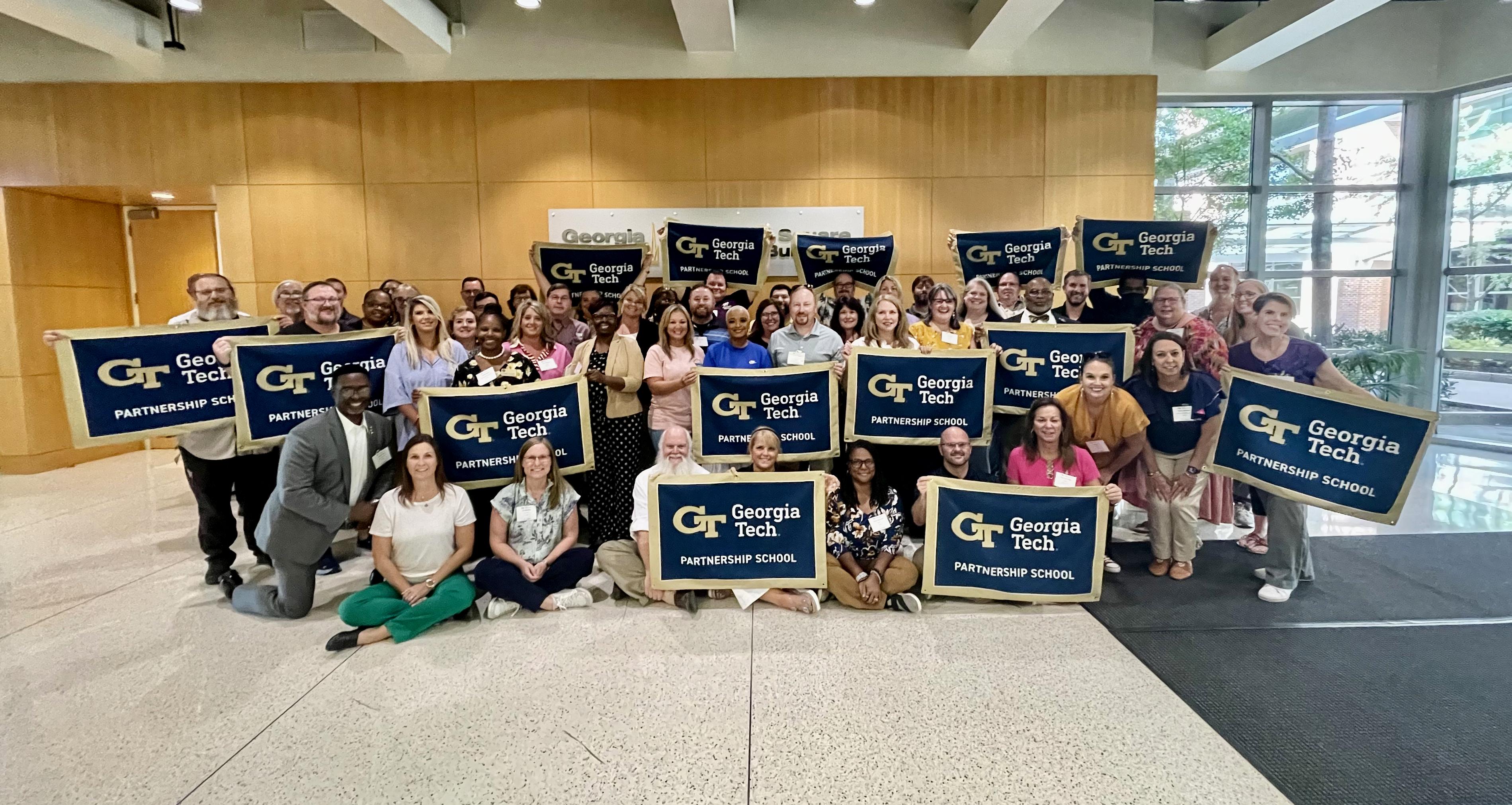Rural Georgia High Schools Computer Science Program Reaches New Heights
Aug 28, 2024 —

Rural high school computer science teachers meet on the Georgia Tech campus
The Georgia Tech-led Computer Science for Rural Georgia High Schools Program recently received additional financial support from the Georgia General Assembly for 2024-25. The program has exploded with unprecedented growth over the last year, going from 800 student participants to 4,400. Participating high school teachers across Georgia met at Georgia Tech Aug. 26 – 27 to share ideas and best practices going into the new school year.
Launched with funding from the state legislature in 2022, the program was developed collaboratively by Georgia Tech’s Center for Education Integrating Science, Mathematics, and Computing (CEISMC) and STEM@GTRI, Georgia Tech Research Institute’s K-12 outreach program.
It focuses on developing coding, music, artificial intelligence, and cybersecurity skills in high school students in rural parts of the state. During its pilot year, the program served 11 schools in eight school districts in Bartow, Chattooga, Effingham, Fayette, Gordon, Haralson, Liberty, and Walker counties.
Today, it serves 39 schools and 24 school districts: Candler, Catoosa, Chattahoochee, Clinch, Decatur, Dooly, Fannin, Grady, Hancock, Houston, Jeff Davis, Jones, Laurens, Lumpkin, Macon, Oglethorpe, Peach, Screven, Stephens, Tattnall, Thomas, Treutlen, and Twiggs counties.
Modules taught to students include introduction to coding, advanced coding, principles of cybersecurity, foundations of AI, introduction to robotics, intermediate coding, intermediate robotics, sensors and data science, website design, sensors, and data science.
“This rural computer science initiative has been transformative for Twiggs County schools,” said Mack Bullard, school superintendent. “We find it very difficult to find computer science teachers who are willing to come to rural Georgia to teach.”
He called partnering with Georgia Tech professors “transformative for our school system. Experiences like robotics and coding in class have excited our kids now that they've been able to see what's possible. From our collaborations with other teachers in this program, I can see future student projects in Twiggs County related to agriculture, such as the building and programming of probes. This computer science program has been phenomenal.”





